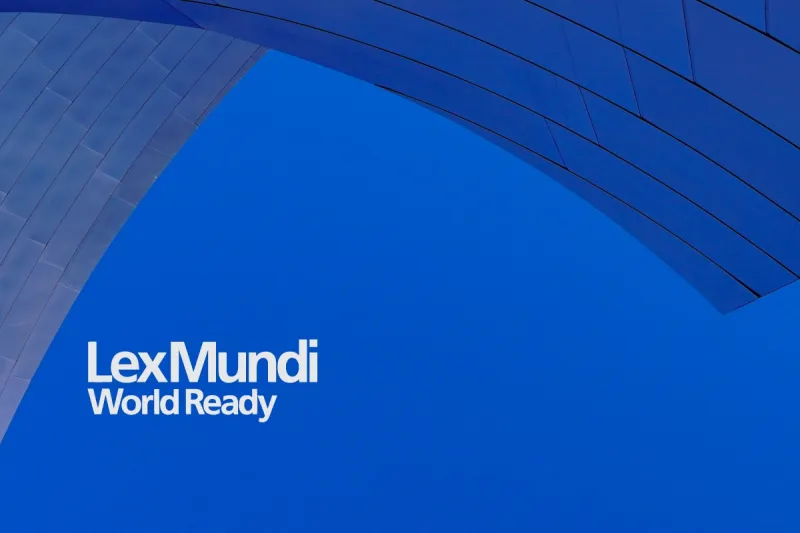Introduction of the draft of Macau trust law
https://www.mdme.com/xms/files/Arquivo/2023-10/MdME_Introduction_of_the_draft_of_Macau_trust_law.pdf

Definition of Trust
The term "trust" originates from the common law system and is a property relationship based on faith and trust. As a product of the common law system, trusts do not seamlessly integrate with the theories of the civil law system on property rights and legal relationships.
Therefore, regions of various civil law systems have different views on the legislation and concept of trusts. However, generally, all legal systems characterize the trust relationship as "the transfer of specific property (i.e., "trust property") to the trustee by the owner of the property (i.e., "trustor") based on trust in the trustee. The trustee manages and disposes of the trust property for the benefit of a specific person (i.e., "beneficiary")."
Comparison of the Trust Law in China and the Draft of the Trust Law in Macau
Types of trust
Article 3 of the China Trust Law provides an overall specification for the basic categories of trusts, dividing trusts into civil trusts, business trusts, and public welfare trusts.
In comparison, although the draft of the Macau Trust Law does not explicitly list the types of trusts, Article 15 of the draft stipulates that only the following institutions or companies may become trustees: credit institutions, financial companies, property management companies, investment fund management companies, insurance companies, pension fund management companies, and entities permitted to engage in trust business under special laws. It is, therefore, clear that the draft does not classify trusts, but from the legislative intent, it can be seen that the draft focuses more on developing commercial trusts.
Ways to Set Up a Trust
According to Article 8 of the China Trust Law, the creation of a trust shall take the form of writing. The form of writing shall consist of trust contracts, testaments, or other documents specified by laws and administrative regulations.
Although Article 3 of the draft of Macau Trust Law also states that the creation of a trust shall take the form of writing, it can only be set up by contract or testament.
In other words, both jurisdictions allow the creation of trusts by testament. In addition, the China Trust Law also allows the creation of trusts by other unilateral legal acts, while the draft of the Macau Trust Law only allows the creation of contracts (bilateral legal acts).
Transfer of Trust Property
Trust is a product of the common law system, and there are many differences in the regime of property rights between the common law system and the civil law system. Under the common law understanding, the owner of the property "transfers" the common law title to the trustee, while the beneficiary holds the equitable title of the trust property. Thus, the "transfer" of the title of the property to the trustee is one of the elements of the existence of a trust.
However, the civil law system does not have the same regime of property rights as in the common law system, and there are different understandings on whether the ownership of trust property must be "transferred" to the trustee.
According to Article 2 of the China Trust Law, the trustor must "entrust" the property rights to the trustee.
Meanwhile, Article 2 of the draft of Macau Trust Law expressly establishes that the trustor "transfers" his property to the trustee. Article 3 also stipulates that trusts are generally created by private documents, but other formalities must be observed due to the nature of the trust property. Article 6 further regulates that registration is necessary when property or rights are subject to a registration form part of the trust property (i.e., at the time of transfer to the trustee). Thus, the intention of the Macau legislator is clear in stipulating that the trust property is "transferred" from the trustor to the trustee.
Yet, despite the different regulations of the transfer of trust property between the two jurisdictions, both Articles 15 and 16 of the China Trust Law and Article 11 of the draft of the Macau Trust Law mention that the trust property is an independent asset and distinct from the own property of the trustor and the trustee.
The independence of the trust property means that when the trustor "transfers" the trust property to the trustee, the trust property no longer belongs to the trustor and will not bear his debts, and his creditors have no claim against the trust property. At the same time, although the trust property is "transferred" to the trustee, the trustee must "clearly separate, manage and keep separate accounts" of trust property from their own property. That is, the trust property also does not belong to the trustee and does not bear his debts.
As a result, the trust property becomes an independent property from the property of the trustor, trustee, and beneficiary, and thus plays the role of risk isolation for a property.
Rights and Obligations Of Trustor, Trustee, and Beneficiary
Chapter 4 of the China Trust Law lists the qualifications, rights, and obligations of the trustor, trustee, and beneficiary in separate articles. Whereas the draft of the Macau Trust Law focuses on the enumeration of obligations of the trustee to accentuate the rights of the trustor and beneficiary.
Although the rights and obligations of the trustor, trustee, and beneficiary are regulated differently in the two jurisdictions, such regulations are similar in general because both jurisdictions follow the civil law system and share a similar understanding of the trust relationship.
For example, in respect of the trustee, both jurisdictions stipulate his obligations to (i) distinguish the trust property, (ii) maintain proper records, and (iii) compensate for damages caused to the trust property due to the breach of the terms of the trust. Regarding the beneficiary, both jurisdictions also have similar provisions on the enjoyment, waiver, and disposal of his right to benefit from the trust.
The China Trust Law expressly grants the trustor the right of information to the trust property (the right to know the administration, use, and disposition of, and the income and expenses relating to, his trust property) and the right of administration (the right to request the trustee to modify the method of administrating the trust property), etc. However, the draft of the Macau Trust Law did not appear to have adopted such provisions.
Suggestions for the Draft of the Macau Trust Law
The trust system originated in the common law system and was originally intended as a way for people to manage their personal property or to distribute their estates. It was developed as a private trust or family trust. As a tool for inheritance and management of private wealth, it provides the trustor with a flexible property management design, and then gradually develops into more regulated business or commercial trusts. Therefore, trusts are derived from private trusts and feature flexible planning.
Despite that, it is shown from an overview of the draft of the Macau Trust Law that the legislative intent is to focus on the development of business trusts. The draft imposes restrictions on the qualifications of a trustee. In the Explanatory Note of the draft, the legislator indicates that the trustee, as an important party of trust activities, should have his behaviors, rights, and obligations clearly regulated. The good intention of the legislator is undeniable: imposing certain restrictions while promoting the development of financial activities so that the financial industry can develop in an orderly manner. Having said that, the legislator seems to have neglected the regulation of the activities of a civil trust or private trust, which restricts the development of trust activities as a whole.
Moreover, the draft clearly states that trust property must be "transferred" to the trustee and then "transferred" to the beneficiary according to the terms of the trust. The Macau tax law has relevant taxation provisions for the transfer of property, but the draft did not stipulate whether the transfer of property in a trust relationship is taxable, or whether it will constitute double taxation and other issues. It is believed that further amendments to the relevant tax law are required.
Finally, trusts can be a form of estate distribution. The Macau Civil Code has mandatory provisions on estate distribution, such as forced heirship (sucessão legitimária), whereby a forced heir (herdeiro legitimário) is entitled to a certain portion of the estate, which cannot be changed by testament. However, it seems that the draft did not specify whether the trust property can affect such a portion.
The Significance of the Macau Trust Law to Financial Institutions
First, in response to the objective of modern financial development mentioned in the Policy Address of Macau, the draft stipulates that only certain financial institutions can be trustees, to promote the development of commercial trusts. The entry into force of the Trust Law will provide a legal basis for local wealth management. The flexibility of the regime of trust and the independence of the trust property will help the local financial industry to create more diversified investment products and financial instruments, including banking products and private equity investment funds, etc. Especially considering that the Securities Law and the Fund Law will enter the legislative agenda one after another, it is believed that there will be synergy effects with the trust business, such as the use of business trusts in securitization transactions and the development of trust funds.
Macau Trust Law and Greater Bay Area Finance
The Development Plan of the Guangdong-Macau In-depth Cooperation Zone, announced by the State Council in September 2021, stated the modern financial industry as one of the development goals of the Zone and emphasized that Macau should give full play to its role to connect with Portuguese-speaking countries. The Plan also encouraged the establishment of multi-currency venture capital funds, private equity investment funds, etc.
Hence, the Macau government is actively participating in the construction of the Greater Bay Area. In particular, the Guangdong-Macau In-depth Cooperation Zone is used as a platform to integrate with the development of the country. The Macau government also promotes the moderately diversified development of the economy of Macau, with modern finance as one of the four key industries to be promoted in the Zone. With the introduction of the Macau Trust Law, the development of trust business, and the diversification and innovation of financial products it is believed that apart from Macau residents, investors from the Greater Bay Area can also be attracted to allocate their personal wealth in Macau. Some examples of the diversification and innovation of financial products are (i) the use of trusts in structured finance transactions and various investment funds, (ii) the creation of securities investment trusts (especially the use of trusts in asset securitization transactions in the case of asset securitization as a means of financing), (iii) the introduction of financial leasing trusts jointly designed by trust companies and financial leasing companies, and (iv) insurance benefit trusts jointly designed by trust companies and insurance companies, etc. At the same time, with the development of cross-border financial services, it will also be more convenient for investors of the Greater Bay Area to participate in the investment of local financial products, or even attract them to allocate their overseas assets in Macau to set up offshore trusts.
Besides, Macau can also fully implement its role as a platform to the Portuguese-speaking countries in the Greater Bay Area, featuring cross-border capital offshore business. Also, with the development of the trust business, Macau can create financial products such as Macau-Portugal cross-border financing, attracting investors from the Greater Bay Area to participate or set up multi-currency investment funds, or attracting more foreign companies to set up funds in the Greater Bay Area, etc. Meanwhile, in response to the policy of the Central Government to establish Macau as an RMB clearing center for Portuguese-speaking countries, enterprises from Portuguese-speaking countries (and other multinational enterprises) can invest in trust products and other trust-based financial products of Macau, to centralize the management of RMB and foreign currency funds, avoid exchange rate risks, and promote the use of RMB in Portuguese-speaking countries (and international markets). Moreover, when the Portuguese-speaking countries use Macau as a platform to promote their business to the Mainland, they can also enjoy the preferential policies brought to Macau by the Mainland and Macau Closer Economic Partnership Arrangement (commonly known as "CEPA"). If the two governments can further implement the reciprocal policies on financial business under CEPA through the Supplementary Agreement, the competitiveness of Macau with neighboring financial centers will be enhanced and the characteristics of Macau as a Sino-Portuguese financial platform to expand business financial services between China and Portuguese-speaking countries will be more effectively utilized.
Furthermore, if the Mainland can introduce more favorable policies for the modern financial development of Macau, such as adopting a more flexible foreign exchange control policy for investors from the Greater Bay Area to participate in the financial business of Macau, especially when investing in Macau-Portugal cross-border financial products through Macau, the characteristics of Macau as a free port of capital and a platform for Sino-Portuguese trade can be better utilized, to achieve a staggering development between Macau and neighboring regions (such as Hong Kong, Shenzhen, Taiwan, etc.).




